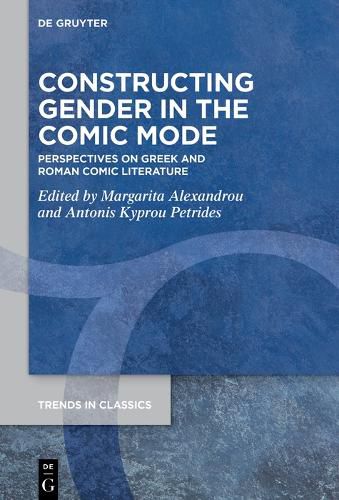Readings Newsletter
Become a Readings Member to make your shopping experience even easier.
Sign in or sign up for free!
You’re not far away from qualifying for FREE standard shipping within Australia
You’ve qualified for FREE standard shipping within Australia
The cart is loading…






Gender was not theorised as such in Greco-Roman culture. Nonetheless, the concept of gender was never static or stable over the centuries-and if gender is a social construct, it is inevitably also a literary one. Ancient society and literature develop a dialectical, co-dependent dynamic in shaping and promulgating gender norms, perpetuating or challenging stereotypes. The book focuses on the construction of gender "in the comic mode", that is, in literary genres including, beyond comedy itself, iambic poetry, parody, mimiamb, epigram, satire, dialogue, even epistolography. Arguably, in terms of gender construction, the comic mode allows for a more uninhibited representation of sexuality, social roles, and stereotypical views and attitudes, using its arsenal of burlesque, grotesque, hyperbole, subversion, and standardised character types. Embracing-rather than obfuscating-the fluid nature of such fundamental concepts as "gender" and the "comic", and foregrounding their problematisation in antiquity, to the extent that such there was, the volume explores the convergences and divergences of gender construction within the "comic" canon, establishing a timeline of evolution, variation, and continuity as regards the relevant topoi. The book will be of interest to academics/students of Classics and Gender studies, as much as anyone interested in how ancient ideas of gender may have influenced modern thought.
$9.00 standard shipping within Australia
FREE standard shipping within Australia for orders over $100.00
Express & International shipping calculated at checkout
Gender was not theorised as such in Greco-Roman culture. Nonetheless, the concept of gender was never static or stable over the centuries-and if gender is a social construct, it is inevitably also a literary one. Ancient society and literature develop a dialectical, co-dependent dynamic in shaping and promulgating gender norms, perpetuating or challenging stereotypes. The book focuses on the construction of gender "in the comic mode", that is, in literary genres including, beyond comedy itself, iambic poetry, parody, mimiamb, epigram, satire, dialogue, even epistolography. Arguably, in terms of gender construction, the comic mode allows for a more uninhibited representation of sexuality, social roles, and stereotypical views and attitudes, using its arsenal of burlesque, grotesque, hyperbole, subversion, and standardised character types. Embracing-rather than obfuscating-the fluid nature of such fundamental concepts as "gender" and the "comic", and foregrounding their problematisation in antiquity, to the extent that such there was, the volume explores the convergences and divergences of gender construction within the "comic" canon, establishing a timeline of evolution, variation, and continuity as regards the relevant topoi. The book will be of interest to academics/students of Classics and Gender studies, as much as anyone interested in how ancient ideas of gender may have influenced modern thought.